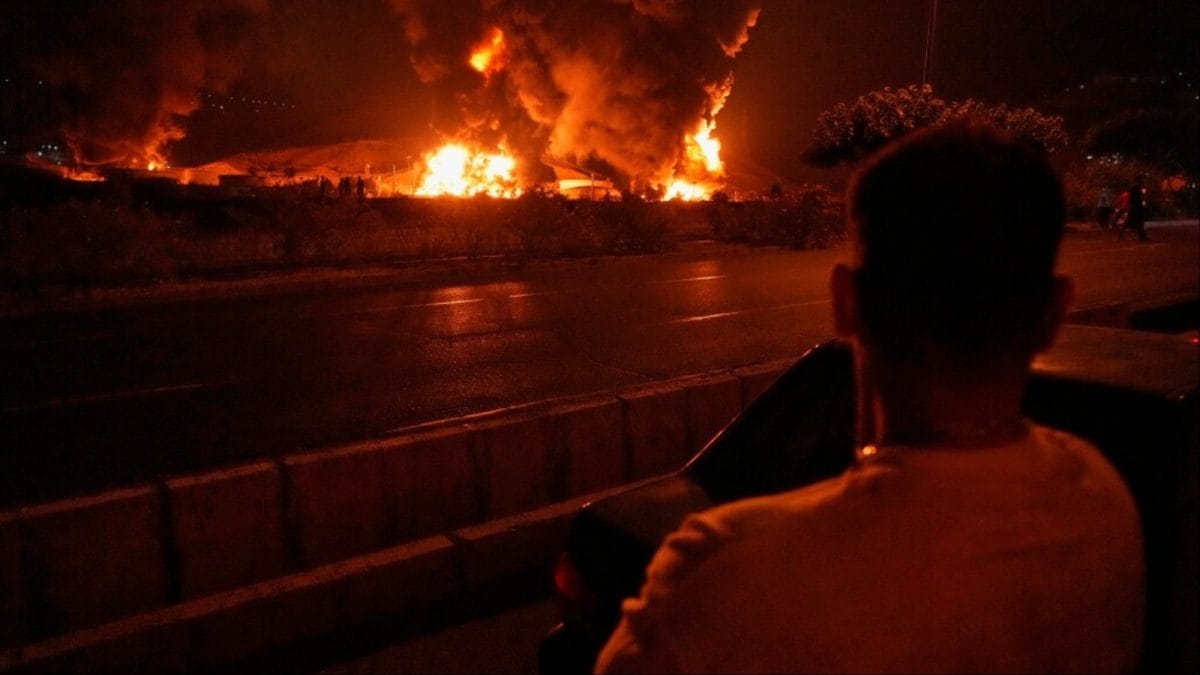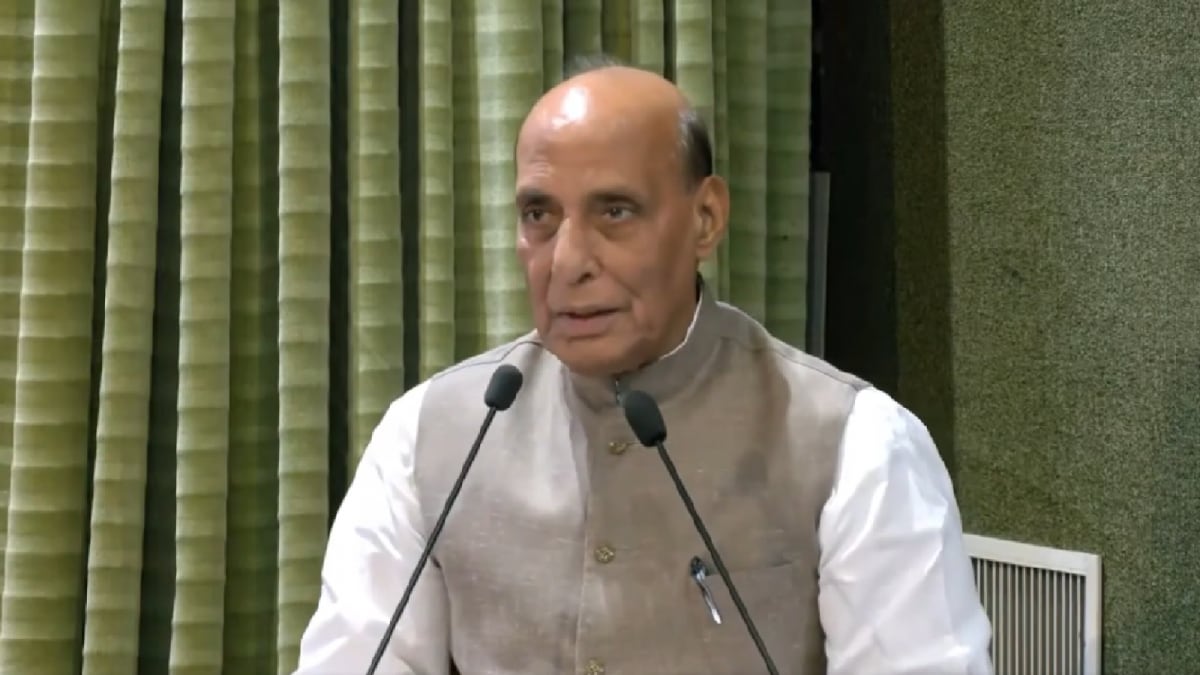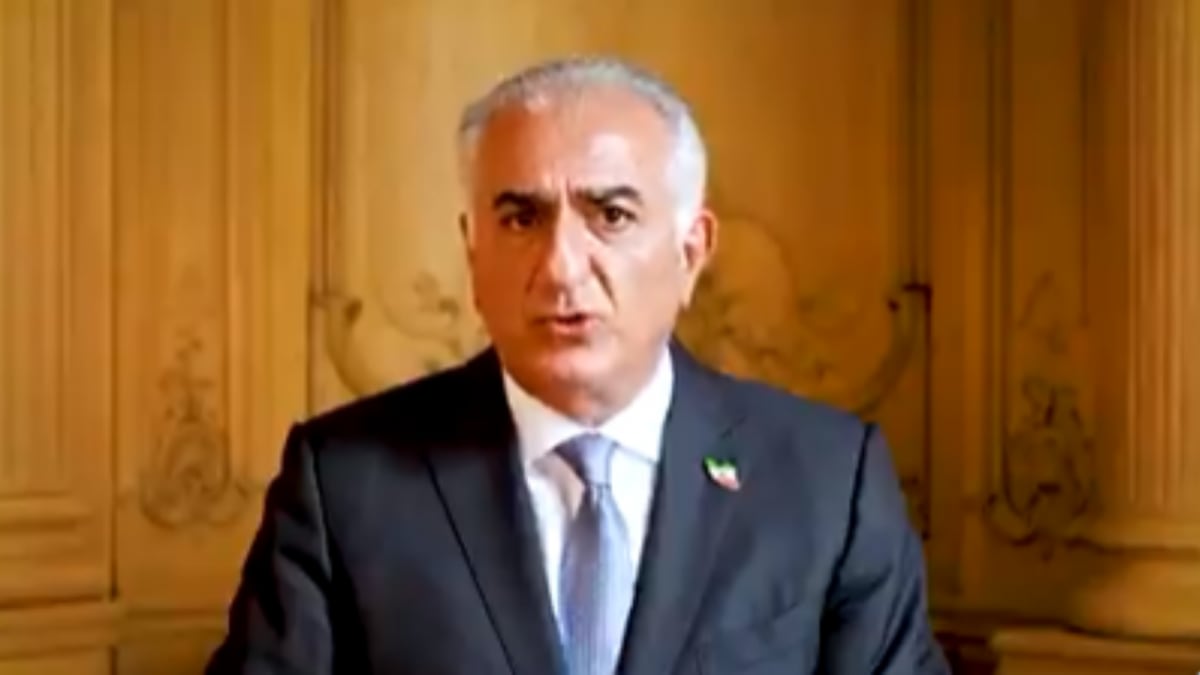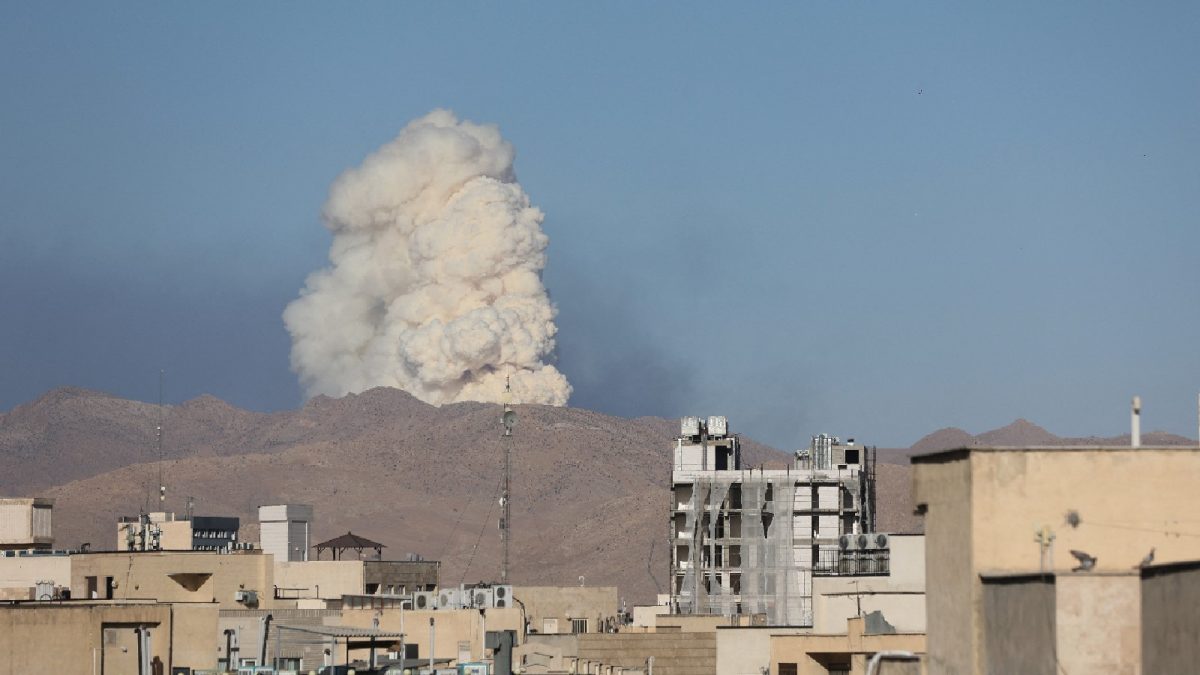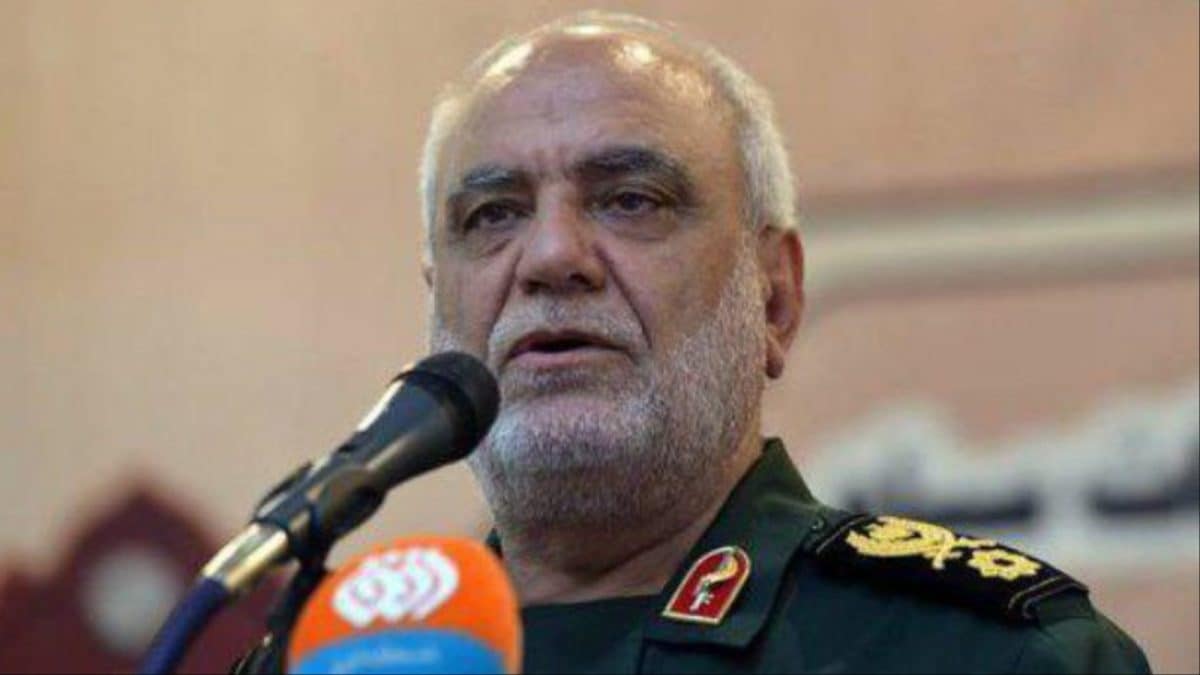White House: Trump to make a decision on whether to attack Iran 'within two weeks'
The White House said that Donald Trump will “make a decision on whether to attack Iran within two weeks”.
Speaking to reporters on Thursday, White House press secretary Karoline Leavitt cited a message from Trump in which he said:
“Based on the fact that there’s a substantial chance of negotiations that may or may not take place with Iran in the near future, I will make my decision whether or not to go within the next two weeks.”
Leavitt added that “correspondence has continued with Iran”.
Key events Show key events only Please turn on JavaScript to use this feature
The UK foreign secretary, David Lammy has met his US counterpart Marco Rubio to discuss the conflict in the Middle East
The pair were joined by British ambassador Peter Mandelson and Donald Trump’s special envoy to the Middle East, Steve Witkoff, for the meeting at the White House.
Rubio’s spokesperson, Tammy Bruce, said: “They discussed the conflict between Israel and Iran and agreed Iran can never develop or acquire a nuclear weapon.
“They reviewed other key areas of US-UK co-operation, including efforts to bring an end to the Russia-Ukraine war. The secretary (Mr Rubio) and foreign secretary (David) Lammy also talked about the upcoming Nato summit and reaffirmed the importance of increased defence spending to secure peace and stability.”
Iran’s foreign ministry summoned Germany’s envoy following what it called “unwise and irresponsible” statements by the German chancellor supporting Israeli actions that violate international law, AP reports, citing Iran’s state-run IRNA news agency.
IRNA reported that the country’s foreign ministry conveyed Tehran’s “strong protest” to Markus Potzel, over the German chancellor’s remarks, which he described as an “implicit endorsement of lawbreaking and the use of force against a peaceful country and government.”
In the meeting, Iran underscored Germany’s international commitment, as a signatory to the United Nations Charter, to oppose aggressive acts that breach international law. It asserted that Israel’s armed attack on Iran “explicitly violates Article 2, Paragraph 4 of the UN Charter and is a clear instance of an aggressive act that must be condemned by all UN member states.”
Germany is a staunch ally of Israel.
UK prime minister Keir Starmer and Bahraini crown prince Salman bin Hamad Al Khalifa, agreed on the need for closer relationships to support stability in the Middle East, a spokesperson for Starmer’s office said on Thursday.
“The leaders called for de-escalation and both agreed on the need for enduring and closer relationships across the region to support stability,” the spokesperson said, referring to the ongoing conflict in the Middle East.
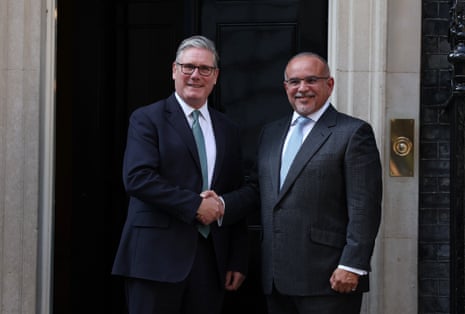
An explosion occurred at the residence of the Norwegian ambassador to Israel on Thursday evening in Tel Aviv, the Norwegian foreign ministry said.
“We have been in contact with the embassy tonight. No staff with the embassy was injured during the incident,” the foreign ministry said in an emailed statement to Reuters.
It did not say what caused the explosion.
Israeli military strikes hit Iran’s Khondab Heavy Water Research Reactor, a project under construction that had not begun operating, and damaged the nearby plant that makes heavy water, the UN nuclear watchdog said on Thursday, Reuters reports.
“IAEA has information the Khondab (former Arak) heavy water research reactor, under construction, was hit. It was not operational and contained no nuclear material, so no radiological effects,” the IAEA said in a post on X.
“While damage to the nearby Heavy Water Production Plant was initially not visible, it is now assessed that key buildings at the facility were damaged, including the distillation unit,” the IAEA statement said.
What is Donald Trump’s plan for Iran? Is he about to break his campaign pledge for ‘no more wars’? And if he does, could this be the moment he loses some of his most loyal Maga supporters?
The Guardian’s Rachel Leingang and Andrew Roth discuss:
Israel’s attack has exposed Iran’s lack of firepower but the conflict could yet turn in Tehran’s favour.
The Guardian’s Dan Sabbagh reports:
It is a week since Israel began its largest attack ever on Iran, and in conventional military terms it is clear that Tehran is under extreme pressure. Israel has been able to achieve superiority over Iran’s skies at extraordinary speed, within hours of launching its surprise assault. Its military claimed on Monday to have knocked out 120 Iranian air defence systems through a mixture of air and drone strikes, about a third of Tehran’s pre-war total.
In response, Iran’s most effective weapon has been its stock of high-speed ballistic missiles, estimated at about 2,000 by Israel’s Defence Force (IDF) at the outset of hostilities last week. But the heavy targeting by Israel of launch sites in western Iran, in underground bases such as at Kermanshah – coupled with Israel’s grimly effective targeted killing of Iran’s top military commanders – have left Iran struggling to respond militarily and presenting a significant threat.
Iran has so far launched more than 400 missiles at Israel, but half, about 200, were launched in the initial retaliatory barrages last Friday. Since Monday the size of its missile barrages has reduced to a maximum of 15 to 20 (including 15 on Thursday afternoon), compared with up to 40 during the weekend, according to a count compiled by a US thinktank, the Institute for the Study of War. Iran’s ability to manufacture new weapons is also likely to be limited, estimated by the US to be 50 a month before the hostilities broke out.
For the full story, click here:
The body of a Ukrainian mother who had travelled to Israel for her daughter’s leukemia treatment was recovered on Thursday from a building struck by an Iranian missile four days earlier, Israeli officials said.
Agence France-Presse reports:
The city of Bat Yam, close to Tel Aviv, announced that “in the past few minutes, a body was found at the site of the missile impact”, identifying the victim as 31-year-old Maria Peshkarova, 31, also known as Marina.
Peshkarova had travelled to Israel in December 2022 on a medical visa to seek life-saving treatment for her daughter Anastasia, 8, who was killed along with her grandmother in the destroyed apartment bloc in Bat Yam, according to the mayor’s office.
Peshkarova’s husband is fighting in Ukraine’s war against Russia, according to the Israeli news website Ynet.
Israeli authorities had previously released the names of eight people killed in the strike and had stated that one person was missing. Peshkarova’s confirmed death takes the total deathtoll in Israel to 25 since the war with Iran started on Friday, according to authorities.
Ukraine’s Ministry of Foreign Affairs announced Sunday that five of its nationals were killed in the Iranian strike on Bat Yam near Tel Aviv, including three minors. Ukraine on Tuesday urged its citizens to leave Israel and Iran as soon as possible amid the spiralling conflict between the two countries.
The UK has updated its travel guidance to Lebanon on Thursday, warning on its website that “there is a risk of disruptions to air travel to and from Beirut airport due to ongoing hostilities in the region which could escalate quickly and pose security risks for the wider region.”
“Separately, the risk of air strikes in areas of Lebanon, including in southern suburbs of Beirut, remains,” the website said.
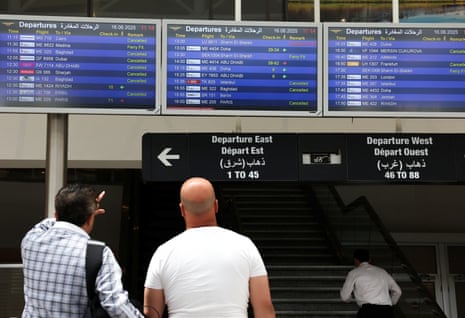
Iranian state media said air defence systems were activated Thursday against “hostile targets” over the capital Tehran, a week into a war triggered by major Israeli attacks, Agence France-Prese reports.
“Iran’s air defences confront hostile targets in northern Tehran,” said official news agency IRNA without elaborating.
White House: Trump to make a decision on whether to attack Iran 'within two weeks'
The White House said that Donald Trump will “make a decision on whether to attack Iran within two weeks”.
Speaking to reporters on Thursday, White House press secretary Karoline Leavitt cited a message from Trump in which he said:
“Based on the fact that there’s a substantial chance of negotiations that may or may not take place with Iran in the near future, I will make my decision whether or not to go within the next two weeks.”
Leavitt added that “correspondence has continued with Iran”.
Donald Trump has denied a report in the Wall Street Journal that he has approved US plans to attack Iran, saying that the news outlet has “no idea” what his thinking is concerning the Israel-Iran conflict.
The Guardian’s Edward Helmore reports:
The Journal reported late on Wednesday that Trump told senior aides a day earlier that he had approved attack plans but was delaying on giving the final order to see if Tehran would abandon its nuclear program. The report cited three anonymous officials.
On Thursday, Trump responded to the report, posting on Truth Social: “The Wall Street Journal has No Idea what my thoughts are concerning Iran!”
But Trump’s decision is dependent on whether the Massive Ordnance Penetrator (MOP) would destroy the Fordow uranium enrichment site, a US official told Axios. Fordow, which is built into a mountain south of Tehran, is a target of Israel’s, but they lack the “bunker-buster bombs” and aircraft needed to destroy it; the US has access to both.
“We’re going to be ready to strike Iran. We’re not convinced yet that we’re necessary. And we want to be unnecessary, but I think the president’s just not convinced we are needed yet,” a US official told the outlet.
For the full story, click here:
Israeli prime minister Benjamin Netanyahu said on Thursday that the change or fall of the Iranian regime was not a goal but could be a result.
“The matter of changing the regime or the fall of this regime is first and foremost a matter for the Iranian people. There is no substitute for this. And that’s why I didn’t present it as a goal. It could be a result, but it’s not a stated or formal goal that we have,” Netanyahu told Israeli public broadcaster Kan, Reuters reports.
The day so far
Israel’s defence minister said on Thursday that Iran’s supreme leader Ayatollah Ali Khamenei “can no longer be allowed to exist” after Soroka hospital in southern Israel was hit during an Iranian missile attack, Agence France-Presse (AFP) reports. Israel Katz told journalists in Holon near Tel Aviv: “Khamenei openly declares that he wants Israel destroyed – he personally gives the order to fire on hospitals. He considers the destruction of the state of Israel to be a goal, such a man can no longer be allowed to exist.”
Speaking at Soroka hospital in Beersheba, Israeli prime minister Benjamin Netanyahu was asked about Donald Trump’s intentions and whether Israel expected the president to join the bombing campaign against Iran. The president said at the hospital: “That’s a decision for the president to make, but I can tell you that they’re already helping a lot, because they’re participating in the protection of the skies over Israel and its cities.”
A missile struck the base of a skyscraper on Jabotinsky street in Ramat Gan, close to central Tel Aviv and about 200 metres from the city’s diamond exchange. Local people said a takeaway pizza business took the full force of the strike, but some older apartment blocks across the road were also wrecked by the force of the blast, which had smashed windows across the district.
The Associated Press (AP) reports that at least 240 people were wounded by the Iranian missile strikes on Thursday morning. The outlet said that four individuals has been seriously wounded, according to Israel’s Health Ministry.
The Israeli military said on Thursday that Iran used a missile with multiple warheads in its attack, posing a new challenge to its defenses, the Associated Press (AP) reports. Instead of having to track one warhead, missiles with multiple warheads can pose a more difficult challenge for air defense systems, like Israel’s Iron Dome.
US special envoy Steve Witkoff and Iranian foreign minister Abbas Araqchi have spoken by phone several times since Israel began its strikes on Iran last week, in a bid to find a diplomatic end to the crisis, three diplomats told Reuters. According to the diplomats, who asked not to be identified due to the sensitivity of the matter, Araqchi said Tehran would not return to negotiations unless Israel stopped the attacks, which began on 13 June.
German chancellor Friedrich Merz had a phone call with Israeli prime minister Benjamin Netanyahu in which Merz called for moderation in Israel’s campaign against Iran, a German government source told Reuters on Thursday. Merz voiced Germany’s support in principle for Israeli military attacks on Iran’s nuclear infrastructure during the call on Wednesday evening but stressed the importance of seeking diplomatic solutions to the conflict, the source said.
Iran could shut the strait of Hormuz as a way of hitting back against its enemies, a senior lawmaker said on Thursday, though a second member of parliament said this would only happen if Tehran’s vital interests were endangered. Iran has in the past threatened to close the strait of Hormuz to traffic in retaliation for western pressure, and shipping sources said on Wednesday that commercial ships were avoiding Iran’s waters around the strait, Reuters reported.
The US special envoy for Syria, Tom Barrack, on Thursday warned Lebanese group Hezbollah against getting involved in the war between its main backer Iran and Israel, Agence France-Presse (AFP) reports. Barrack, who is also the US ambassador to Turkey, is on his first visit to Beirut, where he met top Lebanese officials including parliament speaker Nabih Berri, an ally of Hezbollah.
Gaza’s civil defence agency said Israeli fire killed at least 25 people on Thursday, including 15 who had gathered near an aid distribution site. Civil defence official Mohammad al-Mughayyir told Agence France-Presse (AFP) that 15 people were killed and 60 wounded while waiting for aid in central Gaza’s Netzarim corridor, where thousands of people have gathered daily in the hope of receiving rations.
Iran’s foreign minister Abbas Araqchi confirmed on Thursday he would meet his British, French and German counterparts as well as the European Union’s top diplomat on Friday in Geneva, Iranian state media reported, according to Reuters. He said the meeting had come at the request of the three European states.
Iran on Thursday accused the UN’s nuclear watchdog of acting as a “partner” in what it described as Israel’s “war of aggression”. The Atomic Energy Agency (IAEA) accused Iran in a report prior to the start of the Iran-Israel war of non-compliance with its obligations in its nuclear programme.
Iraq’s top Shia cleric Grand Ayatollah Ali Sistani warned against targeting Iran’s leadership and said that the Iran-Israel war could plunge the whole region into chaos, Agence France-Presse (AFP) reports. Sistani said in a statement on Thursday that any targeting of Iran’s “supreme religious and political leadership” would have “dire consequences on the region”.
Ottawa is planning commercial options for Canadians in Israel, the West Bank and Iran to leave the region via neighbouring countries, foreign minister Anita Anand said on Thursday. “We are developing further options with our allies,” she said in a post on X, but gave no details.
Lithuania will evacuate family members of its diplomats in Israel as well as non-essential staff after an Iranian missile struck Tel Aviv’s Ramat Gan neighbourhood, the Lithuanian foreign ministry said on Thursday.

Helena Smith
Meanwhile, more than 2,000 Israelis are expected today to return to the country from Cyprus, a regional hub for travellers trying to get into or out of the region since the crisis erupted.
An estimated 21 flights are scheduled for Haifa, Tel Aviv and the Red Sea port city of Aqaba in Jordan, according to sources at the island’s main international Larnaca as part of the repatriation scheme.
In the six days since the crisis erupted, more than 100 private vessels have also transported people to and from Israel from Larnaca marina.
The Cyprus news agency reported that 460 people had travelled out of Israel to the island via the sea route with roughly the same number boarding yachts and other craft to head back to Israel.
Returnees were quoted as saying that despite the explosive situation, they were desperate to be back home with their families. Cyprus is the nearest EU member state to the Middle East.
Defence minister Israel Katz says Iran’s supreme leader “personally gives the order to fire on hospitals” after Soroka hospital in southern Israel was hit during an Iranian missile attack.
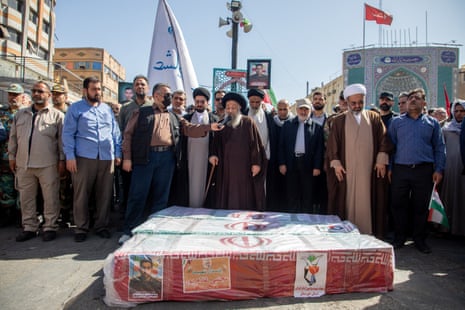
US special envoy Steve Witkoff and Iranian foreign minister Abbas Araqchi have spoken by phone several times since Israel began its strikes on Iran last week, in a bid to find a diplomatic end to the crisis, three diplomats told Reuters.
According to the diplomats, who asked not to be identified due to the sensitivity of the matter, Araqchi said Tehran would not return to negotiations unless Israel stopped the attacks, which began on 13 June.
They said the talks included a brief discussion of a US proposal given to Iran at the end of May that aims to create a regional consortium that would enrich uranium outside Iran, an offer Tehran has so far rejected.
US and Iranian officials did not immediately respond to a Reuters request for comment on the matter.

 7 hours ago
7 hours ago
